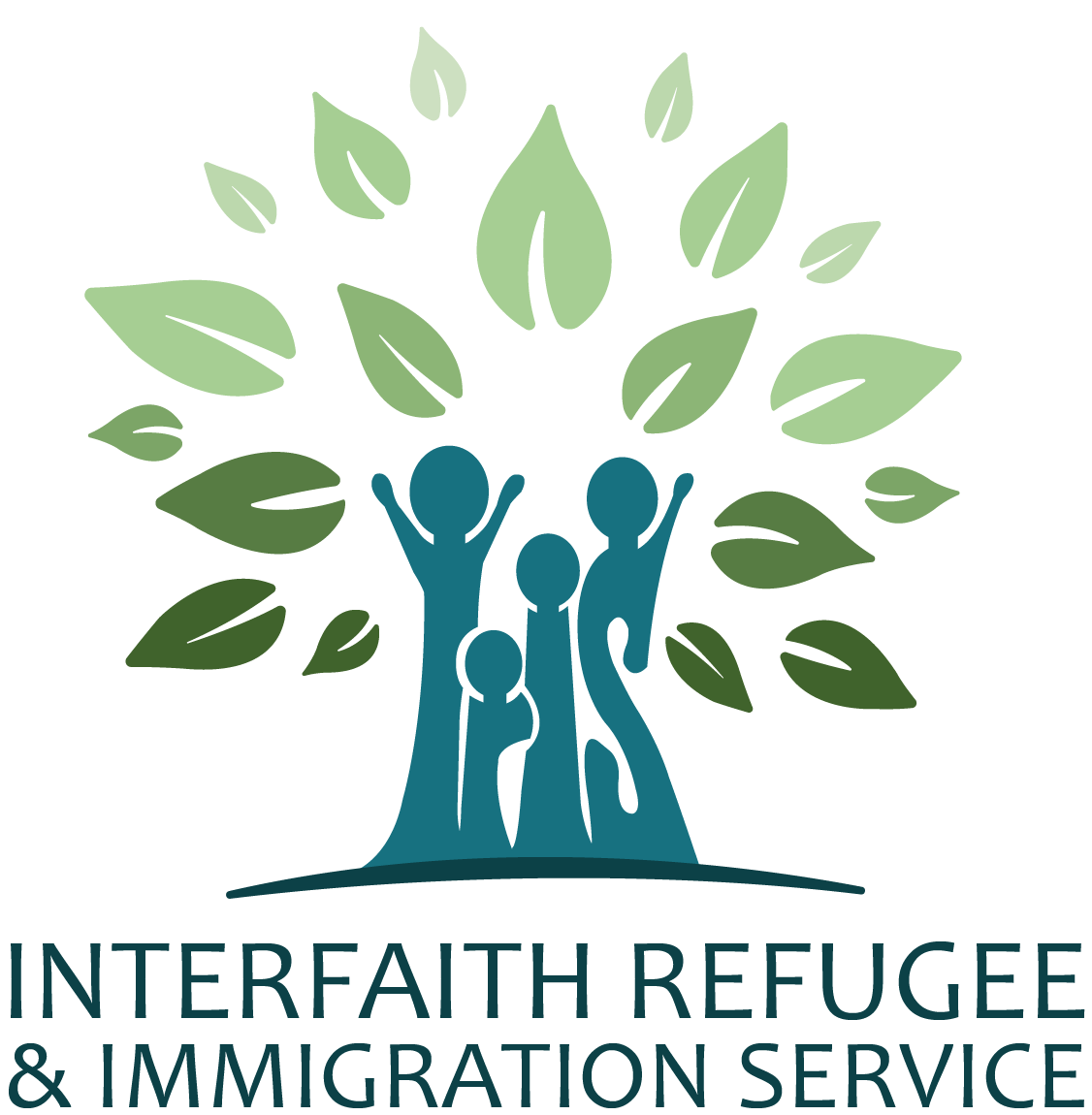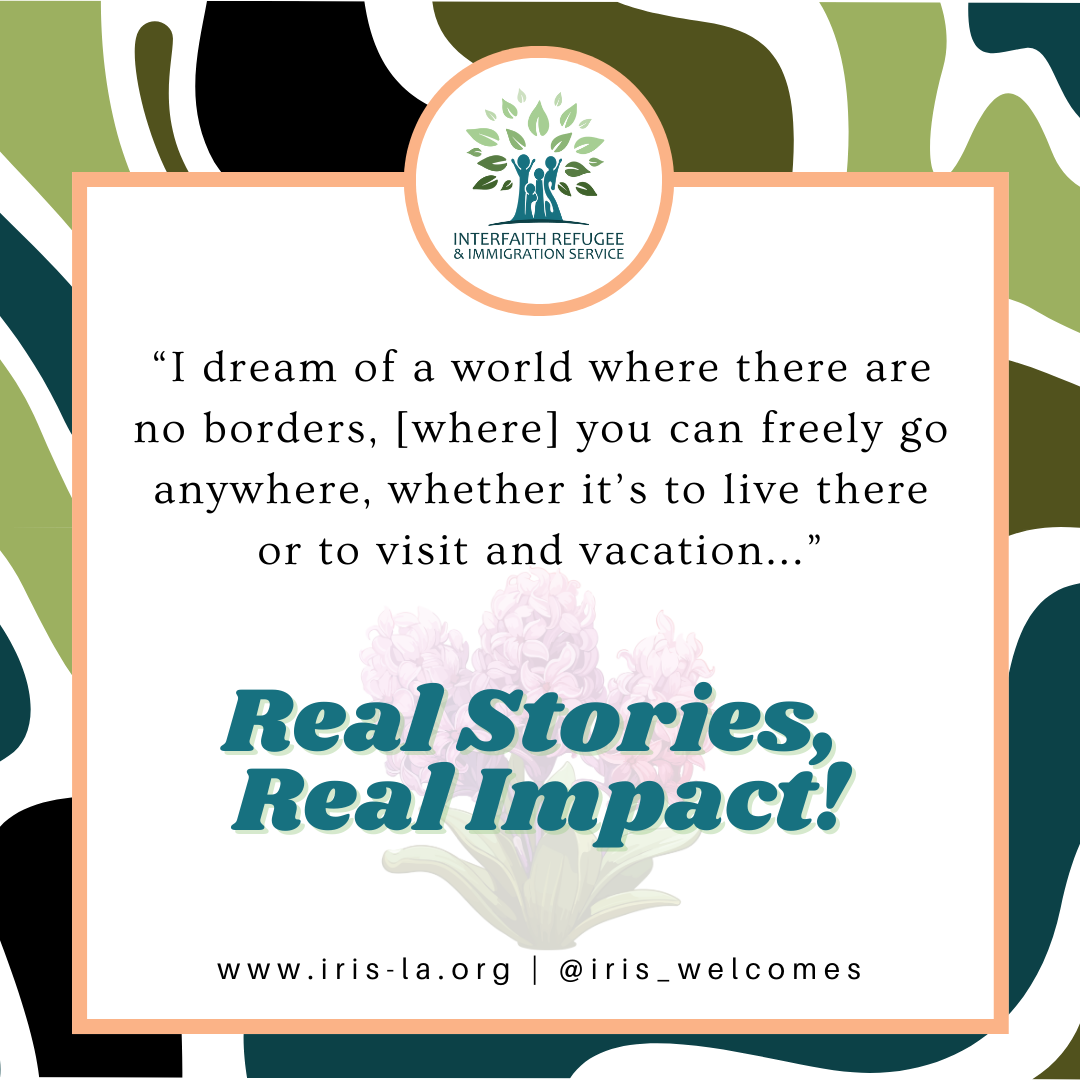IRIS Client Story: Nowruz & New Beginnings
IRIS CLIENT STORY: Nowruz & New Beginnings
Amidst the Iranian New Year of Nowruz in 2015, Amir and his family made the difficult decision to leave Iran. Facing rising pressures in their home country, Amir and his family packed up their belongings and moved into Turkey.
Although they had valid Iranian passports, their stay in Turkey was limited to three months. Knowing this, the family reached out to a United Nations(UN)-affiliated organization they knew of prior to entering the country.
“We were given some papers and were asked to go to a facility in one of the towns about 20 to 30 km [about 18.64 mi] away from Izmir. The town was called Manisa. We were sent over there to sort of wait for the [refugee] case to be processed and to live there for the time being,” Amir said. “Because we left with valid Iranian passports, we didn’t have to cross the border illegally or anything, but the anxiety of whether we would [be] allowed out of the country nevertheless existed.”
While in Manisa, the family was required to stay within the city limit which made it difficult to see extended family or move freely. In 2016, they began the long and uncertain process of refugee interviews and were eventually approved.
Sometime in 2017 or 2018, Amir found out that they would be going to the United States, but federal travel restrictions delayed the process. “Apparently no single case was moving forward during that time and after that, COVID. Our family, like a lot of other refugees, had to wait until about 2023 to move to the destination that we knew about back in 2018,” Amir recalled.
Life in Limbo
While waiting in Turkey, Amir began working to support his family, which meant putting his own education on hold.
“We were lucky enough to be living in a pretty industrial city where there were plenty of opportunities for employment,” Amir said. “My children went to school, my daughters did their high school years there, and my son was still pretty young.”
But being a refugee in Turkey came with challenges. “If you work overtime, you are only paid after the fortieth hour of your overtime. So, if you work 40 hours of overtime, that’s zero hourly. As soon as you hit your 41st hour, you start getting paid,” Amir said. “It wasn’t like that with Turkish locals or Turkish citizens, but it was like that for refugees.”
The family also faced unexpected delays when Amir’s eldest daughter got married in Turkey, creating a separate UN case and adding more uncertainty. Facing the possibility of deportation by the Turkish government, Amir spoke with an attorney and went through legal steps in court before being allowed entry into the US.
“Despite how difficult it was to live in Turkey, I’m still grateful for the opportunities that they provided me with, and providing the moment of relief to wait for our case to be processed,” he said.
A New Start
Amir and his family were connected to IRIS through the UN. He said his case manager was helpful in answering questions and that IRIS provided them with some furniture for their new home. Amir also received guidance for their monthly payments to the federal government, in which he repaid the family’s resettlement transportation costs after starting work in the US.
“I got some financial help at the beginning from IRIS, which was really helpful, especially because we had to rent in Irvine, which can be very pricey,” Amir said. “With the financial help my family received from IRIS, we were able to have enough of a down payment to get our shelter.”
Amir initially worked the night shift at Walmart, allowing him to be home during the day to take care of his children and run errands. More recently, he began working with Uber and is hoping to enroll in English classes at a local college.
Words of Wisdom
Through all the uncertainty, Amir has held onto hope and encourages others to do the same.
“You should never lose hope, as long as you live the harmless life and don’t hurt anyone and keep your head down, and if you believe in a higher power, God or whoever it is, don’t lose your trust and hope in their kindness and power,” he said. “That doesn’t mean that you shouldn't do your best to make things happen, you should still be very much in pursuit and not lose hope.”
Today, Amir still stays in touch with some Iranian families he met in Turkey. His journey reflects not just the hardship of displacement, but the strength and resilience behind every refugee’s story.
“I dream of a world where there are no borders, you can freely go anywhere, whether it’s to live there or to visit and vacation.” - Amir said.
IRIS is grateful for Amir* and his willingness to share the family’s story. Though this is just one experience of over 120 million displaced people, IRIS hopes that it brings greater understanding of the need behind our services. Thanks for reading.
*Names have been changed for client privacy

